Macron’s trip to Switzerland confirms ‘bilateral warming’
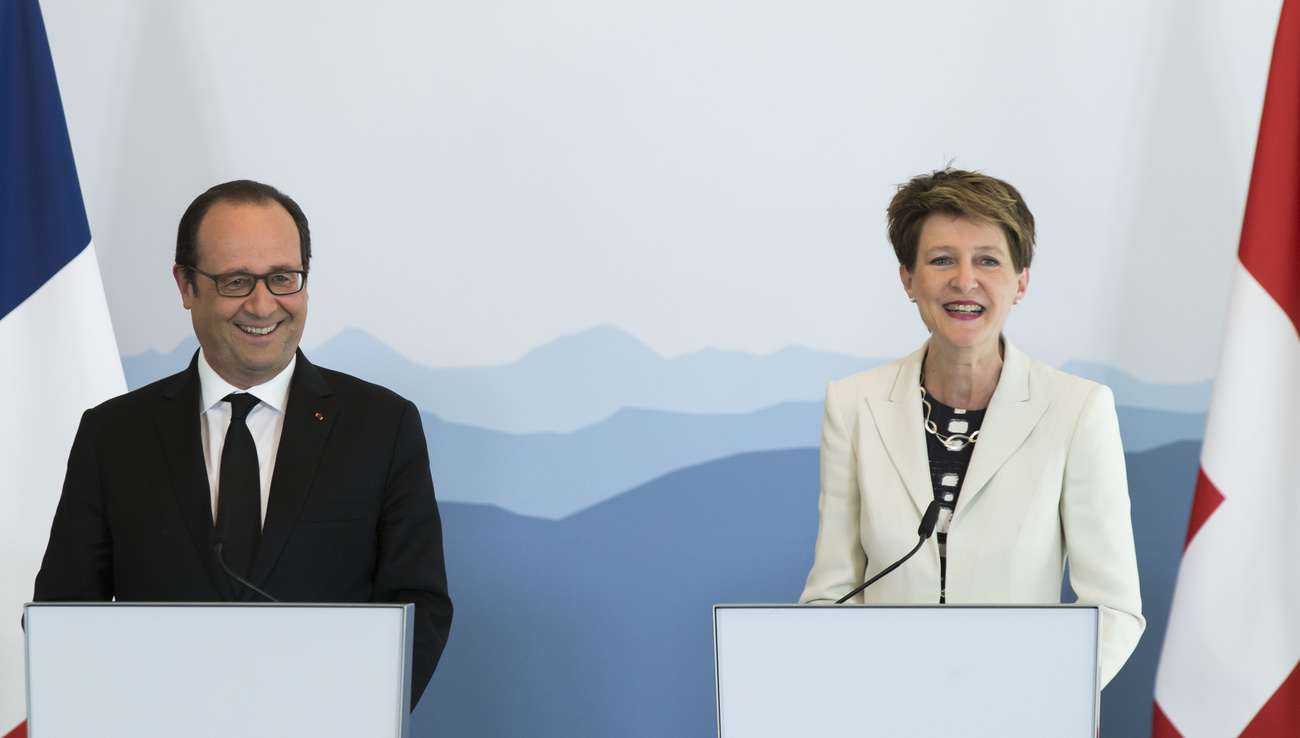
French President Emmanuel Macron is coming to Switzerland on a state visit on Wednesday and Thursday. It will be an opportunity to signal the normalisation of relations after several years of discord.
Macron has waited six years to pay an official visit to Switzerland. Was this down to a lack of interest in the small neighbour? The previous French president to come on a state visit was François Hollande in 2015. “A visit every eight years is quite proper,” reckons François Nordmann, a former Swiss ambassador to France.
On Wednesday in Bern, on Thursday at the University of Lausanne and CERN in Geneva, Macron will have ample opportunity to speak freely with Interior Minister Alain Berset, who holds the rotating Swiss presidency this year. That would have been difficult two years ago, when French-Swiss relations were at an all-time low.
Switzerland’s decision to break off negotiations on a framework treaty with the European Union and especially the preference shown by Bern for American F-35 fighter planes rather than the French Rafale all contributed to frosty relations between Bern and Paris.

More
Swiss fighter jet document reveals secret French tax offer
“We’re coming out of a period of mutual distrust,” says political scientist François Cherix. “The French felt themselves blindsided on the Rafale business, when one part of the federal government was still negotiating with Paris while another had decided on the American plane. Now it’s a question of turning the page and moving on.”
Together in the European Political Community
Marc Ferracci, an old university friend of Macron who is now a parliamentarian representing the French in Switzerland, expresses satisfaction at the “warming” of French-Swiss relations – a warming indicated by several recent meetings at ministerial level.

French Minister of the Interior Gérald Darmanin held talks on illegal immigration with Swiss Justice Minister Elisabeth Baume-Schneider outside Geneva. The same day Finance Minister Karin Keller-Sutter met her French counterpart Bruno Le Maire. It seems to be business as usual.
When Macron launched the European Political Community (EPC) in the wake of the war in Ukraine, Switzerland signed up to this structure intended as a bridge between the European Union and other states on the continent. Berset and Foreign Minister Ignazio Cassis even made an offer for Switzerland to host the bi-annual EPC summit in 2025.
“That enthusiasm helped to speed up the bilateral warming process,” Ferracci says. Macron and Berset will certainly talk about that on Thursday at the University of Lausanne. In their talks they will also have to consider the issue of a fresh start to negotiations with Brussels. The fact that the Swiss government announced a new mandate for negotiations by the end of the year is a “positive sign”, according to Ferracci.
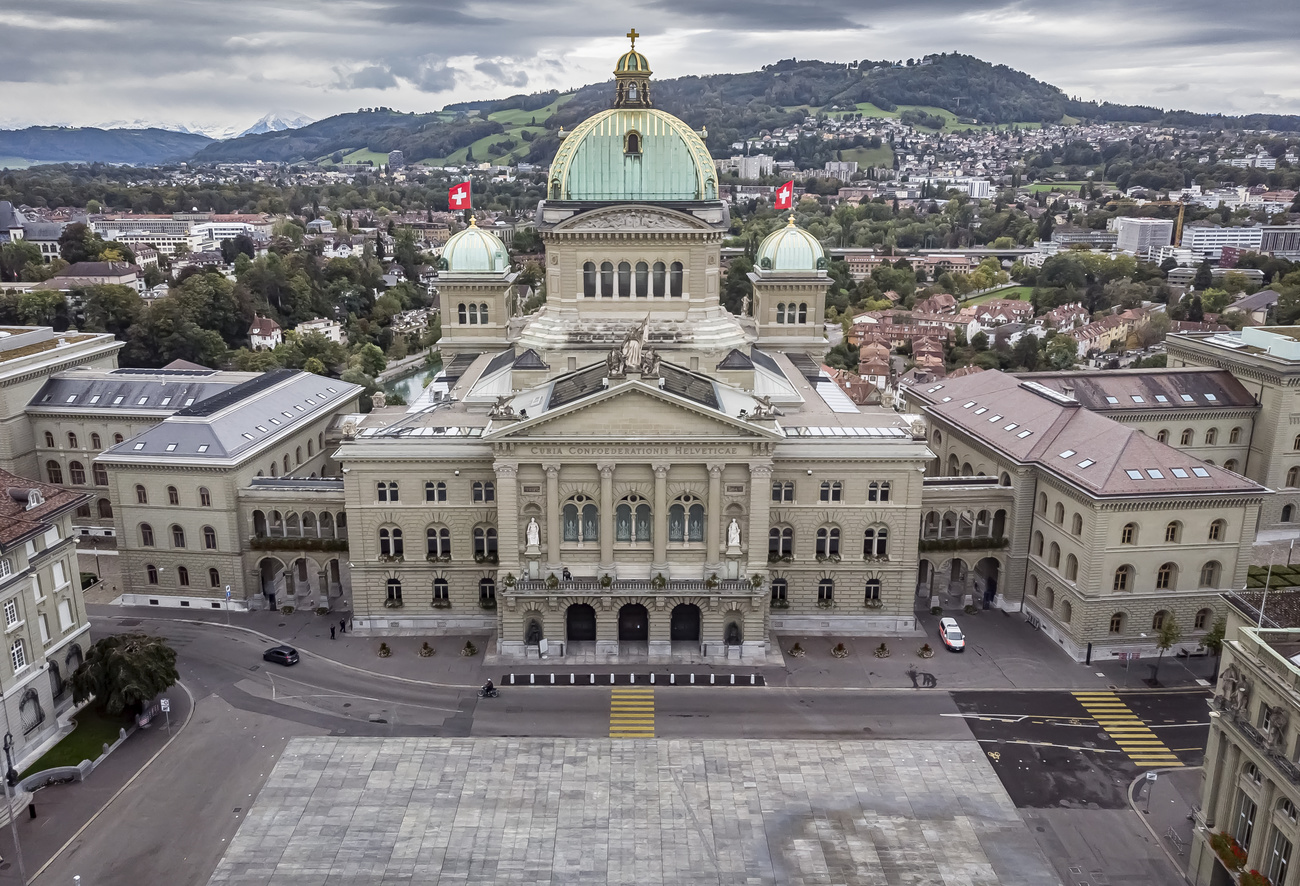
More
Swiss government decides to draw up negotiating mandate with EU
The EU’s Horizon Europe research programme is of particular interest to Switzerland. Paris is holding back on admitting Switzerland to Horizon until the issue of the bilateral accords is settled. “The French position is not just a blockade,” Ferracci explains. “An agreement between the EU and Switzerland needs to be comprehensive. Negotiating about Horizon without talking about free movement of goods and services is not a very practical approach.”
Inspiration from Swiss democracy?
Ferracci knows Switzerland well and is usually to be found in his “constituency” here once a week. In 2017, with Macron just elected to the presidency, Ferracci accompanied Minister of Labour Muriel Pénicaud to Bern and then to the Bobst training centre in canton Vaud. The idea was to learn about the Swiss apprenticeship system in order to improve the French system and bring down youth unemployment. Since then, the number of apprenticeship contracts in France has jumped from 300,000 to over 800,000 last year.
Could Switzerland be a model in other areas? Direct democracy, for example? “We couldn’t just transfer the system in Switzerland to France. Here, the political culture is based on consensus,” Ferracci says. “But local and cantonal referendums could be a source of inspiration for France, where any local referendums are just for consultation, not decision-making. We would need to take a step-by-step approach.”
Flying visit
Macron won’t be in Switzerland for long. It may be a state visit, but it’s a flying visit, 24 hours all told.
“I’m surprised that the French president won’t be going to Zurich or Basel and won’t visit any businesses with branchs in France,” says former ambassador Nordmann. “He could have popped into the Kunsthaus in Basel, where there’s a Matisse and Derain exhibition. This really is a bare-minimum visit.”
In 1998 President Jacques Chirac went to Bern and Zurich prior to venturing south to Ticino, home of then Swiss President Flavio Cotti. In 1983 François Mitterrand wanted to see Solothurn, Basel and especially Neuchâtel, the stamping-ground of his fellow-socialist Pierre Aubert, who welcomed him as Swiss president on that occasion. Mitterrand came to Switzerland every two years on private visits. He seems to have had a real affinity for the country.
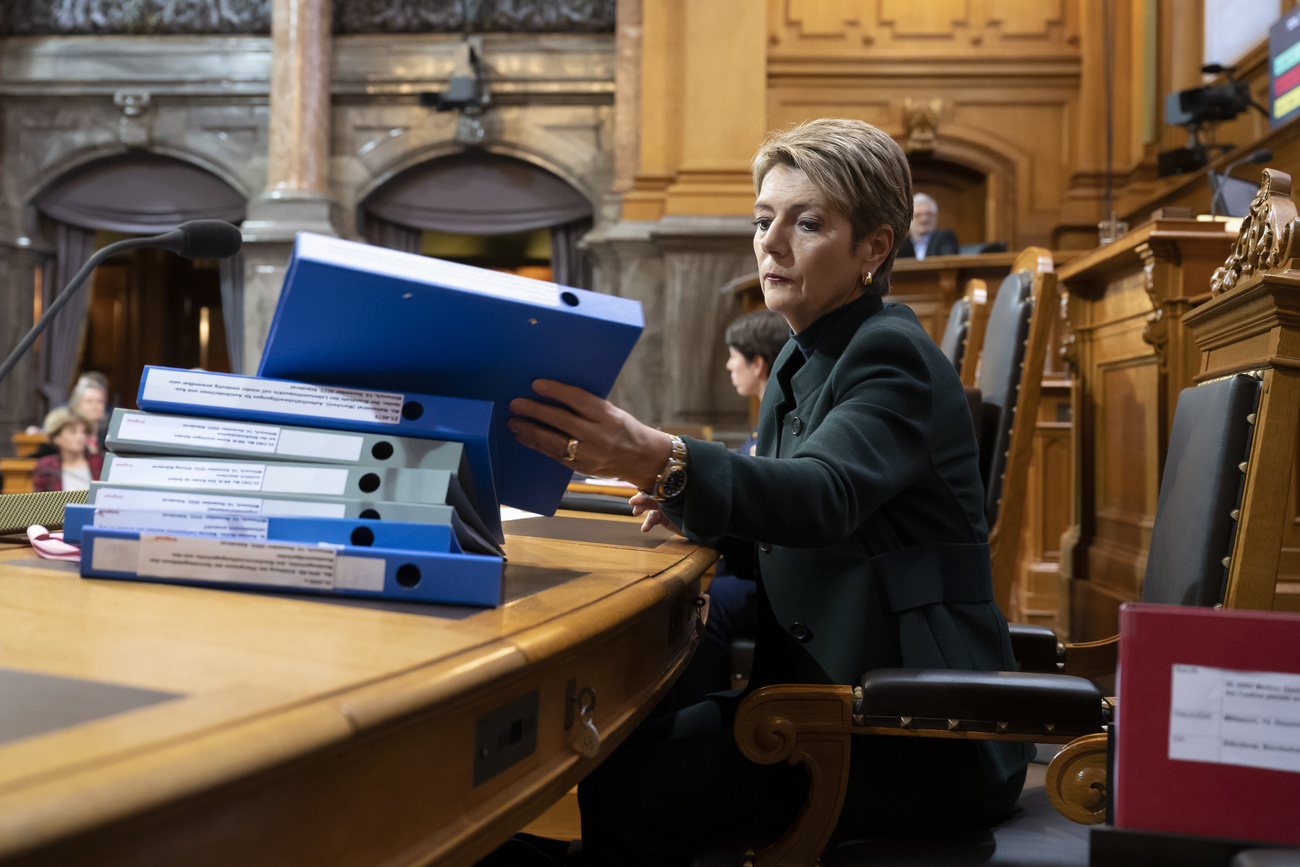
More
France and Switzerland play hot potato over taxes
“It seems a long time since a federal minister like Adolf Ogi could take visiting VIPs up in a helicopter to admire the Alpine glaciers,” says Cherix. “Sentimental tourism by neighbouring leaders is now a thing of the past. I would see that as a sign of declining sympathy for Switzerland in European public opinion. One might add that the global geopolitical situation is very thorny right now. So there’s a need to focus on essentials.”
Some 210,000 Swiss live in France, which makes it the largest community of Swiss Abroad. In all, 163,000 French nationals live in Switzerland – not to mention the 220,000 who commute across the border to work.
As regards the economy, France is Switzerland’s fifth most important trading partner, after Germany, the US, Italy and China. France is favoured by Swiss investors: direct investment amounts to CHF63 billion ($70 billion), meaning that Switzerland has the third-largest amount of foreign investment in France, after the US and Germany.
Edited by Samuel Jaberg. Translated from French by Terence MacNamee

In compliance with the JTI standards
More: SWI swissinfo.ch certified by the Journalism Trust Initiative








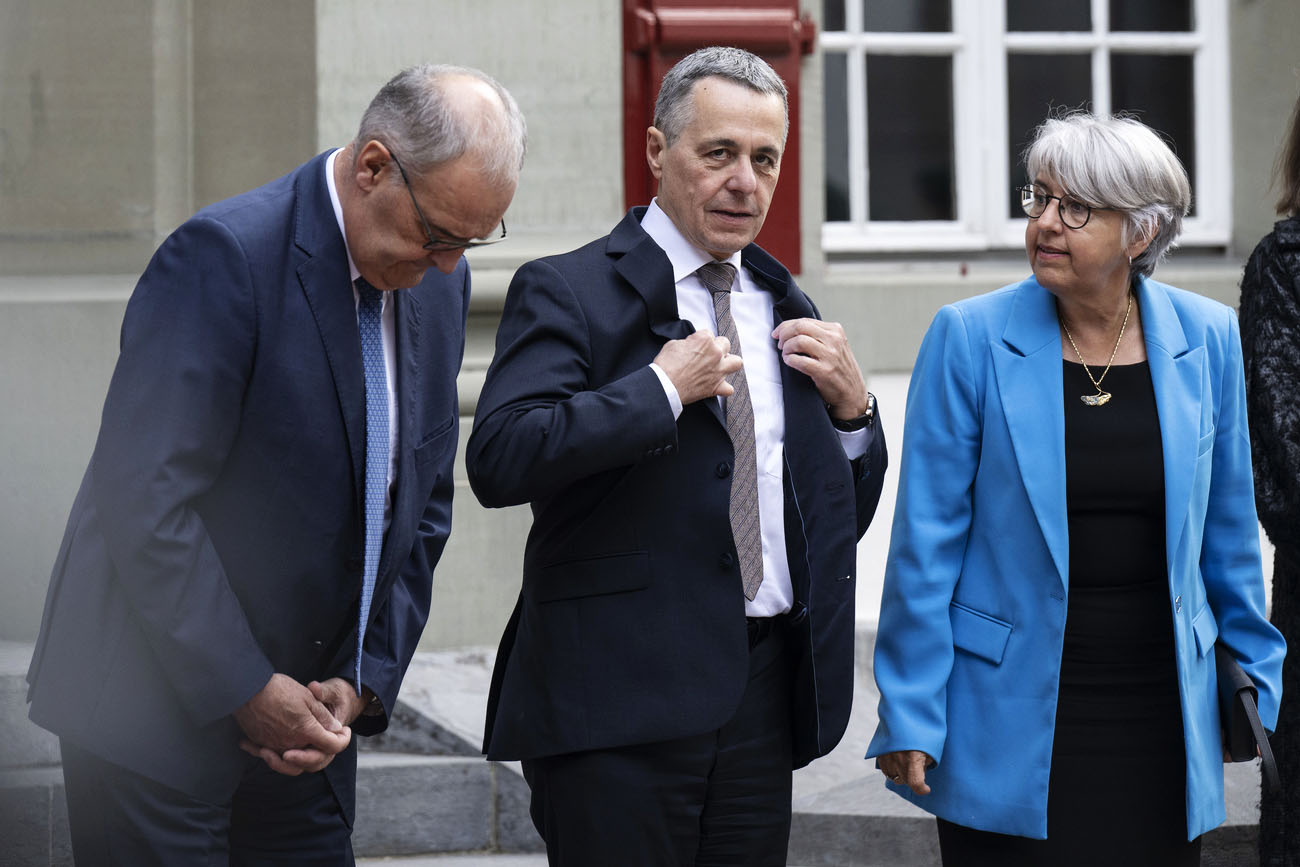
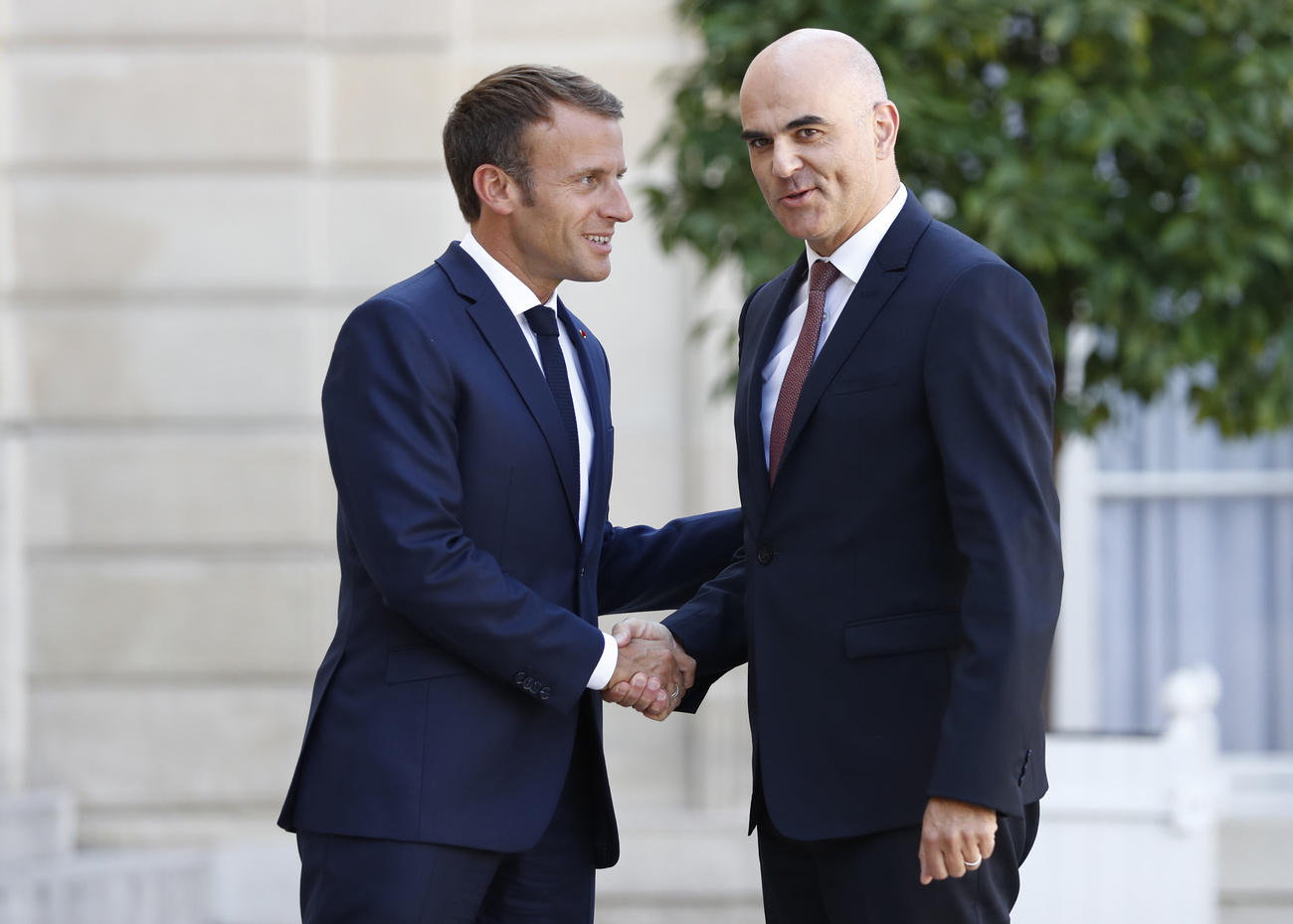
You can find an overview of ongoing debates with our journalists here . Please join us!
If you want to start a conversation about a topic raised in this article or want to report factual errors, email us at english@swissinfo.ch.